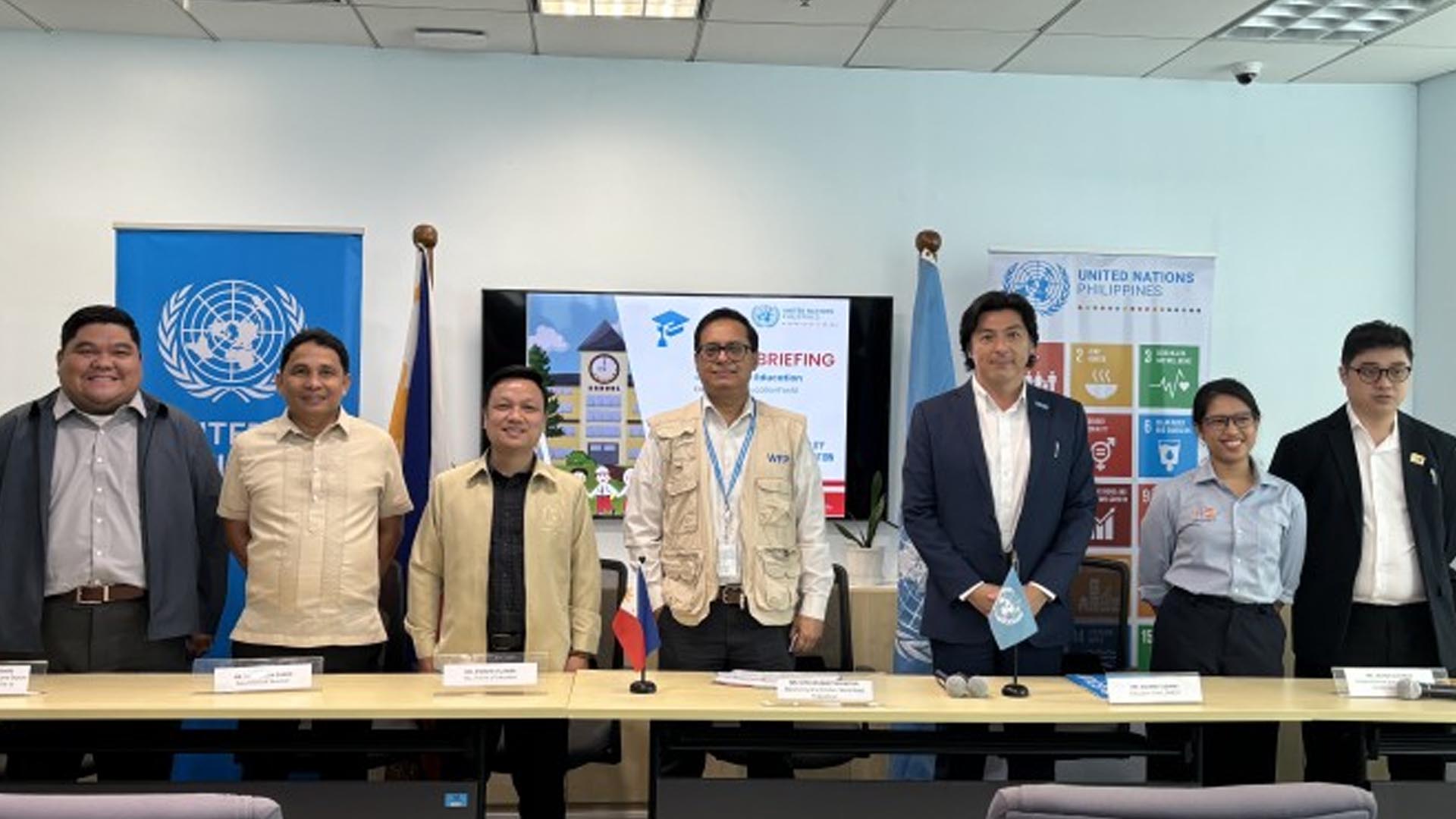United Nations agencies on Tuesday threw their full backing behind the push for quality and inclusive education in the Philippines as classes started this week.
In a press briefing in Makati City, UNICEF (United Nations Children’s Fund) education chief Akihiro Fushimi noted that millions of Filipino children, mostly from the vulnerable and hardest to reach areas, are still unable to access quality education and learning opportunities.
“We are here as a UN body to contribute to the goal of the Philippine government and community to achieve quality education,” he said.
The reiteration of support forms part of a week-long communications campaign by UN Philippines in line with the back-to-school season.
UNICEF, World Food Programme (WFP) and UN Population Fund are present across various regions and support the Philippine government on a multitude of programs, including alternative learning systems, school meals initiative, comprehensive sexuality education and refugee education, among others.
Fushimi said the UNICEF sees a “big momentum” in terms of education support among stakeholders in the country.
He also noted that the Philippine adoption of the K-to-12 education system was a step in the right direction.
“As early as three to four years before (children) enter kindergarten, we have to invest in their health, nutrition and education,” he said.
“I think there’s a huge momentum when it comes to support, with the leadership and with the technical people’s efforts on the daily basis.”
Meanwhile, he noted that the Philippines, along with other Southeast Asian states, is facing a “learning crisis” amid poor learning outcomes among school children.
Within the region, the UN executive said 90 percent of Grade 5 children cannot read at their expected level while 83 percent are struggling with basic mathematics.
“That’s a really serious and widespread, real learning crisis and that was before Covid-19. During the Covid-19, the Philippines experienced a two-year-long school closure,” he said.
“We estimate at UNICEF that children in general in the Philippines, by the time they reach Grade 4, they have skills in reading and mathematics around Grade 2 levels, already two years behind, and it is further worse in BARMM (Bangsamoro Autonomous Region in Muslim Mindanao).”
WFP deputy country director Dipayan Bhattacharyya said the issue may also be attributed to several factors, such as poverty and malnutrition.
He said the WFP will continue to support the Philippines in fulfilling its commitments to the Global School Meals Coalition, including reaching universal school meals coverage by 2030.
“If you look into the way the current school feeding program in the Philippines is designed, it addresses just one element of malnutrition, which is wasting,” he said. “We would really go for universal targeting rather than targeting specific children.”
Bhattacharyya acknowledged that implementing a universal school feeding program would require funding and vowed to provide assistance, including in identifying sustainable financial models.
Among his recommendations is the amendment of Republic Act 11037 or the Masustansyang Pagkain para sa Batang Pilipino (Nutritious Food for Filipino Children) Act, which guides the implementation of government-sponsored feeding at schools.
“The targeting approach is basically determined by that republic act, so we are really requesting and advocating the government to really revisit this and amend it so that we can really move gradually towards universal school feeding program,” he said.
“We are happy to work with the government in terms of looking at different kind of financing models sustainably,” he added. (PNA)









